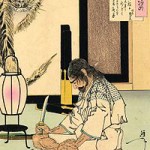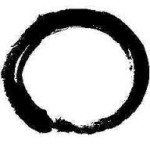The Death Poem
The Death Poem has been a powerful vehicle in many cultures. In Japan it is known as Jisei. Embedded within that culture is the certainty of the transitory nature of our existence. Thus, there is a lifelong preparation for the moment of transit. The voyager uses the power of the passing moment to rise to the level of personal beauty and draft a parting statement. Some are moving.
This process of composing the death poem is one of the most personal expressions one makes. Some record their “last words” or others express those reflections for them, our elegy for the departed.
That reflection is really a reflection that one has at any moment (As we have seen for the last 60 weeks). That reflection, actually opens the door between the worlds. For a moment we peer into the great maw of the unknown, awash with surrender and personal power. I think that poem can be written at any moment. Each sincere writing of such a poem will open the door a tiny crack, each time the door opens a bit more. One day, we will stand with the door open and ajar, we will turn to its embrace its invitation, and yet, we will go on our way to complete our Work, or we gracefully accept, and walk through that new door.
=============
Here are a few of those moments written by others:
It is the hour of the Pearl – the interval between day and night when time stops and examines itself. Cannery Row John Steinbeck
===============
“I’ve seen things you people wouldn’t believe. Attack ships on fire off the shoulder of Orion. I watched C-beams glitter in the dark near the Tannhauser gate. All those moments will be lost in time, like tears in rain. Time to die.”
Death Speech – Rutger Hauer – Blade Runner
======================
”Penetrating so many secrets, we cease to believe in the unknowable,
But, there it sits nevertheless, calmly licking its chops.” H.L. Mencken
====================
If the fool would persist in his folly he would become wise. Blake: The Marriage of Heaven and Hell
===================
How to compare this brief life?
This morning a boat crossed
the harbor, leaving no
mark in the world. Mansei (Japanese poet, circa 720)
=================
But the very fact that there are two of us changes everything, the task does not become twice as easy, no; from being impossible it becomes possible.
Rene Daumal, Mount Analogue
=================
Feel free to post your expressions of the Death Poem here.


